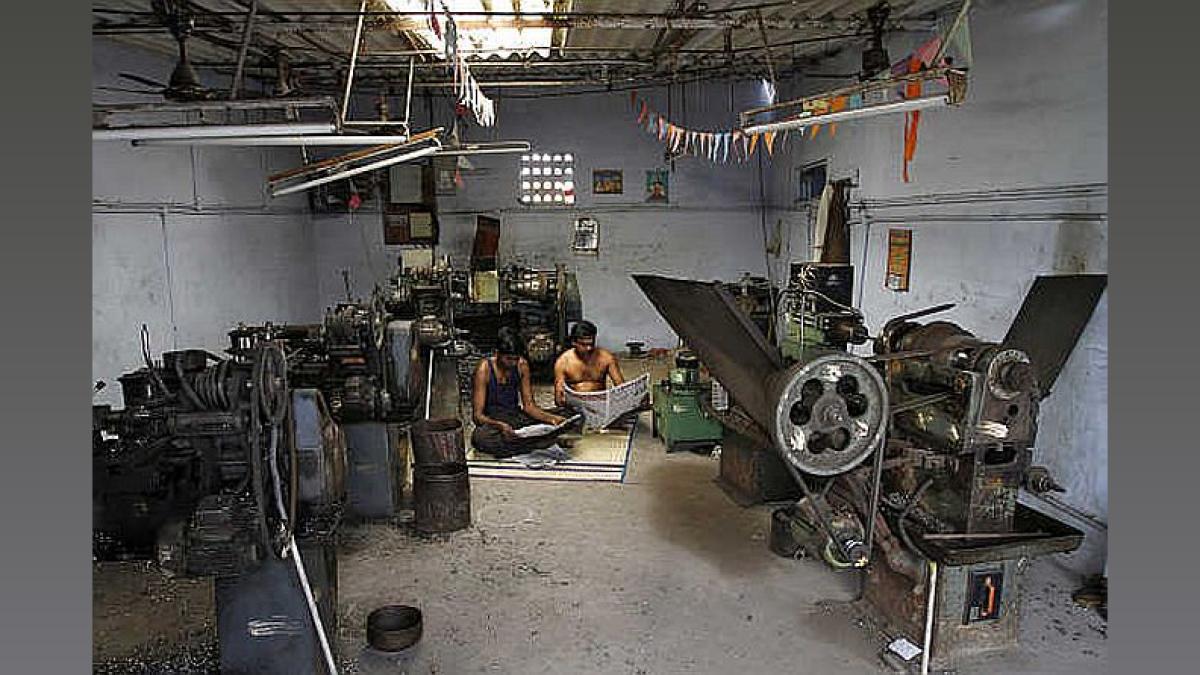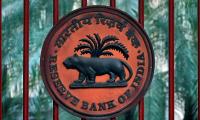Udyam Portal for MSME Creditworthiness: RBI Advice
RBI Deputy Governor advises MSMEs to register on the Udyam Portal to enhance their creditworthiness and access formal finance. Learn about key steps for financial health.

Hyderabad, Nov 25 (PTI) MSMEs operating informally can enhance their credibility by registering on the Udyam Portal, RBI Deputy Governor Swaminathan J has said.
While regulatory policies and government schemes have played a crucial role in creating an enabling environment for MSMEs, it is equally important for Micro, Small & Medium Enterprises (MSMEs) to take proactive steps to build trust and enhance their visibility with lenders, he said.
The Deputy Governor was speaking at the CEO Forum of the Federation of Telangana Chambers of Commerce and Industry here on November 16.
Addressing the gathering, he said despite the critical role of the MSME sector in the Indian economy, a common grouse that we hear from this segment is that they find it difficult to secure timely and adequate formal credit.
This challenge may be on account of factors such as information asymmetry on their financials and business viability, and also on account of limited formalisation even today within the MSME sector, he said.
The Deputy Governor made four suggestions for MSMEs to consider for better access to finance as well as improving their financial health.
One of the suggestions to MSMEs was to embrace formalisation.
MSMEs should prioritise formalisation, Swaminathan said, while noting that many MSMEs operate informally, making it challenging for lenders to assess their creditworthiness due to information asymmetry, particularly regarding their financial performance.
"By registering on the Udyam Portal and filing GST returns, MSMEs can enhance the transparency over their level of business activity and financials. This will enhance their credibility and may qualify them for priority sector lending and government schemes, by reinforcing their trustworthiness in the eyes of financial institutions," he said.
The senior RBI official also said MSMEs should maintain comprehensive and accurate financial records which is essential for seeking credibility with lenders. The MSMEs also need to adopt proper accounting practices, ensuring their financial records, such as income statements, balance sheets, and cash flow statements, are accurate and reliable.
Along with formalisation, he said, adopting digital payment systems like UPI and online banking creates a digital footprint of financial transactions, making it easier for lenders to assess financials of the firm.
Digital payments also improve cash flow management, offering MSMEs greater control over their finances and helping them maintain a clear financial record.
The other suggestions related to credit discipline, capacity building, and use of TReDS.
"The development of the MSME sector requires the collective effort of all stakeholders - government, regulatory bodies, the financial sector, trade associations, and even larger corporates.
"Despite its pivotal role in driving economic growth, the sector faces numerous challenges, including delayed payments, infrastructure constraints, limited access to formal finance, low technology adoption, and a shortage of skilled labour," he said.
The RBI has taken significant steps to address these issues, promoting financial inclusion, easing access to credit, and advocating for digitalisation, the Deputy Governor said.
While the RBI and the government have established a robust policy framework, including priority sector lending, collateral-free loans, digital platforms like TReDS, and capacity-building initiatives, it is equally important for MSMEs to make the most of these opportunities.
Going forward, sustained collaboration among all stakeholders will be crucial to ensuring the continued growth and resilience of this vital sector, he added.
While regulatory policies and government schemes have played a crucial role in creating an enabling environment for MSMEs, it is equally important for Micro, Small & Medium Enterprises (MSMEs) to take proactive steps to build trust and enhance their visibility with lenders, he said.
The Deputy Governor was speaking at the CEO Forum of the Federation of Telangana Chambers of Commerce and Industry here on November 16.
Addressing the gathering, he said despite the critical role of the MSME sector in the Indian economy, a common grouse that we hear from this segment is that they find it difficult to secure timely and adequate formal credit.
This challenge may be on account of factors such as information asymmetry on their financials and business viability, and also on account of limited formalisation even today within the MSME sector, he said.
The Deputy Governor made four suggestions for MSMEs to consider for better access to finance as well as improving their financial health.
One of the suggestions to MSMEs was to embrace formalisation.
MSMEs should prioritise formalisation, Swaminathan said, while noting that many MSMEs operate informally, making it challenging for lenders to assess their creditworthiness due to information asymmetry, particularly regarding their financial performance.
"By registering on the Udyam Portal and filing GST returns, MSMEs can enhance the transparency over their level of business activity and financials. This will enhance their credibility and may qualify them for priority sector lending and government schemes, by reinforcing their trustworthiness in the eyes of financial institutions," he said.
The senior RBI official also said MSMEs should maintain comprehensive and accurate financial records which is essential for seeking credibility with lenders. The MSMEs also need to adopt proper accounting practices, ensuring their financial records, such as income statements, balance sheets, and cash flow statements, are accurate and reliable.
Along with formalisation, he said, adopting digital payment systems like UPI and online banking creates a digital footprint of financial transactions, making it easier for lenders to assess financials of the firm.
Digital payments also improve cash flow management, offering MSMEs greater control over their finances and helping them maintain a clear financial record.
The other suggestions related to credit discipline, capacity building, and use of TReDS.
"The development of the MSME sector requires the collective effort of all stakeholders - government, regulatory bodies, the financial sector, trade associations, and even larger corporates.
"Despite its pivotal role in driving economic growth, the sector faces numerous challenges, including delayed payments, infrastructure constraints, limited access to formal finance, low technology adoption, and a shortage of skilled labour," he said.
The RBI has taken significant steps to address these issues, promoting financial inclusion, easing access to credit, and advocating for digitalisation, the Deputy Governor said.
While the RBI and the government have established a robust policy framework, including priority sector lending, collateral-free loans, digital platforms like TReDS, and capacity-building initiatives, it is equally important for MSMEs to make the most of these opportunities.
Going forward, sustained collaboration among all stakeholders will be crucial to ensuring the continued growth and resilience of this vital sector, he added.
You May Like To Read
TODAY'S MOST TRADED COMPANIES
- Company Name
- Price
- Volume
- Vodafone-Idea
- 11.36 ( -2.49)
- 94664837
- AvanceTechnologies
- 1.16 (+ 4.50)
- 34522155
- Sunshine-Capital
- 0.26 ( -3.70)
- 29015901
- Alstone-Textiles
- 0.27 ( -3.57)
- 28695959
- Mehai-Technology
- 1.65 ( -4.62)
- 28262795






